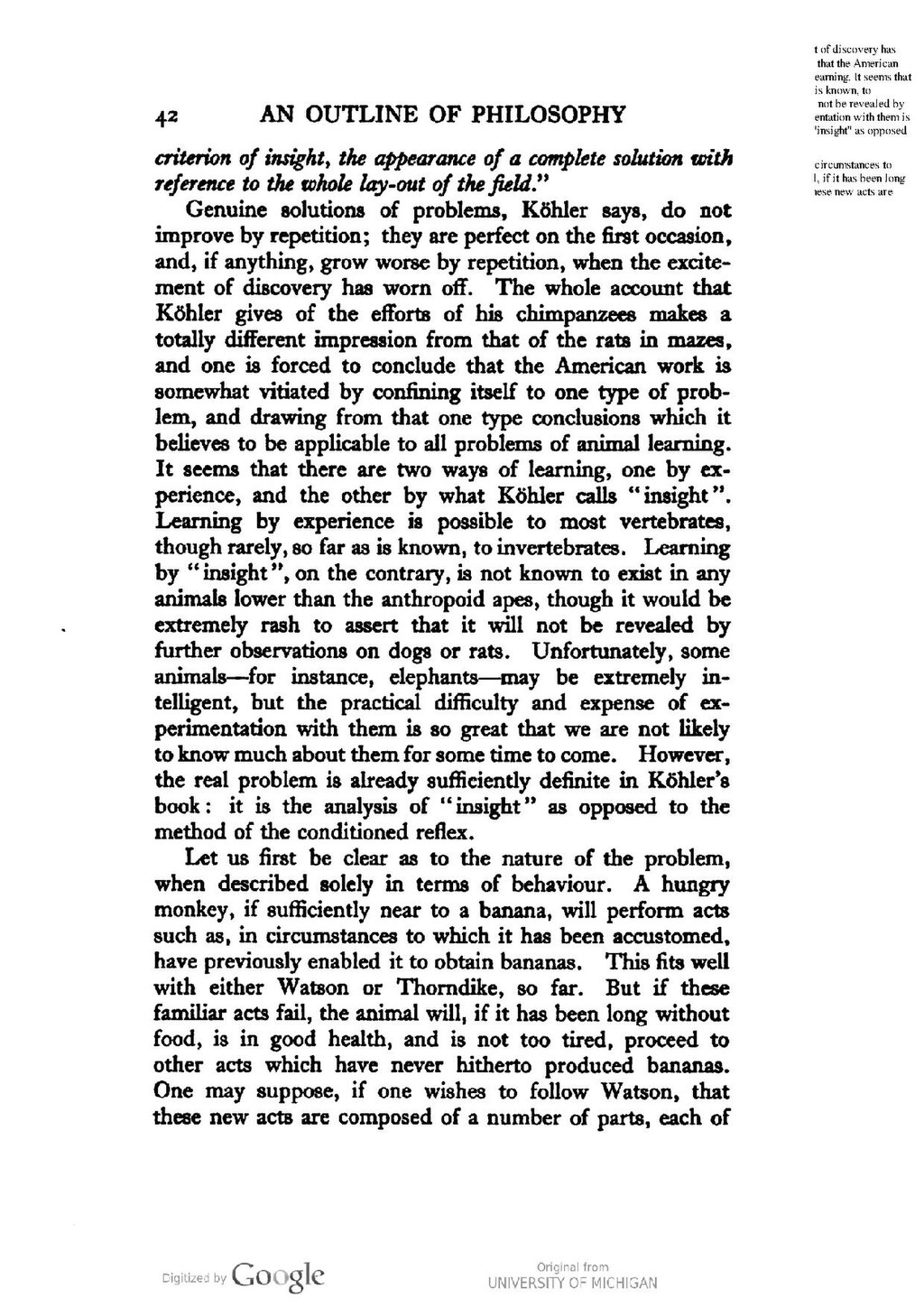criterion of insight, the appearance of a complete solution with reference to the whole lay-out of the field."
Genuine solutions of problems, Köhler says, do not improve by repetition; they are perfect on the first occasion, and, if anything, grow worse by repetition, when the excite- ment of discovery has worn off. The whole account that Köhler gives of the efforts of his chimpanzees makes a totally different impression from that of the rats in mazes, and one is forced to conclude that the American work is somewhat vitiated by confining itself to one type of problem, and drawing from that one type conclusions which it believes to be applicable to all problems of animal learning. It seems that there are two ways of learning, one by experience, and the other by what Köhler calls "insight". Learning by experience is possible to most vertebrates, though rarely, so far as is known, to invertebrates. Learning by "insight", on the contrary, is not known to exist in any animals lower than the anthropoid apes, though it would be extremely rash to assert that it will not be revealed by further observations on dogs or rats. Unfortunately, some animals—for instance, elephants—may be extremely intelligent, but the practical difficulty and expense of experimentation with them is so great that we are not likely to know much about them for some time to come. However, the real problem is already sufficiently definite in Köhler's book it is the analysis of "insight" as opposed to the method of the conditioned reflex.
Let us first be clear as to the nature of the problem, when described solely in terms of behaviour. A hungry monkey, if sufficiently near to a banana, will perform acts such as, in circumstances to which it has been accustomed, have previously enabled it to obtain bananas. This fits well with either Watson or Thorndike, so far. But if these familiar acts fail, the animal will, if it has been long without food, is in good health, and is not too tired, proceed to other acts which have never hitherto produced bananas. One may suppose, if one wishes to follow Watson, that these new acts are composed of a number of parts, each of
